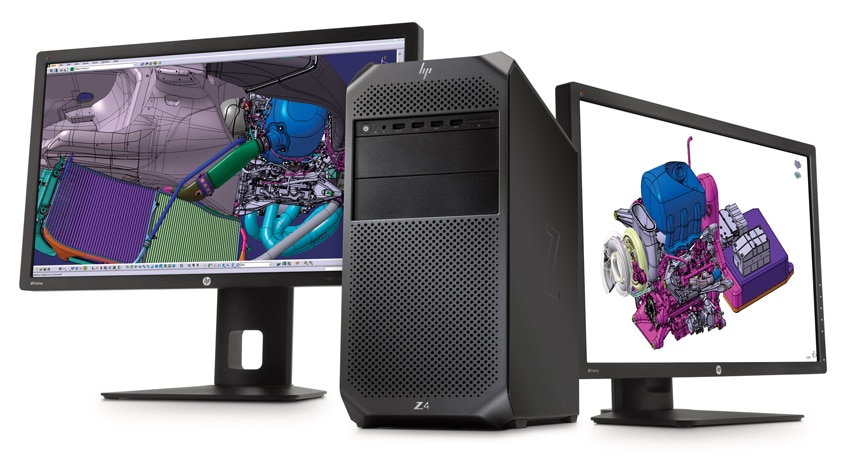HP has announced three new offerings that will assist workers in accessing remote resources. Teradici CAS (Cloud Access Software) is featured prominently in all of these and is the first announcement from HP that we have seen regarding Teradici, a company they acquired earlier this year. We were excited to see NVIDIA in one and surprised to see that Microsoft Windows Subsystem for Linux 2 (WSL 2) also came into play with another offering.
HP has announced three new offerings that will assist workers in accessing remote resources. Teradici CAS (Cloud Access Software) is featured prominently in all of these and is the first announcement from HP that we have seen regarding Teradici, a company they acquired earlier this year. We were excited to see NVIDIA in one and surprised to see that Microsoft Windows Subsystem for Linux 2 (WSL 2) also came into play with another offering.

The first offering is aimed at workers that need to access desktops, workstations, or virtual machines regardless of where they are, where the systems being accessed are located, or what type of device they are using to access them. This is a subscription-based service, which combines ZCentral Software and Teradici CAS. We did an in-depth look at ZCentral last year and were impressed by its power and simplicity. Teradici CAS is composed of three products: a PCoIP Agent, PCoIP Client, and CAS Manager.
CAS Manager connects users with remote systems among other features. It can be consumed as a managed service or deployed on-premises. HP has stated that the price for this offering will be $240 USD per concurrent user.

The second offering builds on the first; however, it includes NVIDIA Omniverse Enterprise. NVIDIA Omniverse Enterprise allows a dispersed workforce to collaborate using 3D design tools like Autodesk 3DS Max, Maya, Revit, Trimble Sketchup, Epic Games Unreal Engine 4, and others.
Real-time collaboration can be a challenge with a remote workforce, so including NVIDIA Omniverse in this offering, it makes the workflow considerably more seamless. HP has announced that with the purchase of a qualifying Z by HP workstation, users can access a three-month trial of NVIDIA Omniverse Enterprise (two Creator licenses, four Nucleus licenses, ten Reviewer licenses – a $2,250 value) and a three-month trial of Teradici CAS (up to fifty licenses – a $3,000 value).

Of all HP’s new offerings, the third one we find the most intriguing as it combines ZCentral Software and Teradici CAS with WSL 2. We have been following WSL since its inception and have watched it develop from its tech preview days to a highly-functional addition in Windows 10. WSL 2 allows you to run a wide variety of Linux distributions on Windows 10, Windows 11, and Windows Server 2019. WSL 2 uses a compatibility layer that allows you to run Linux binary executables natively on Windows 10, Windows 11, or Windows Server 2019. Moreover, WSL 2 can even access the files on a Windows system.
HP ups the ante in this offering by a preloaded data science stack on select Z by HP workstations on the WSL 2 instance that, along with NVIDIA GPUs, to complete complex Ubuntu workflows such as AI training and machine learning directly on a Windows machine.
One of the reasons we find this so intriguing is that many office tools only run on Windows while many of the complex tools that data scientists use have only been developed on Linux. WSL even supports Docker and other container tools. In the past data scientists needed two different systems to be fully functional.
We were curious to see what plans HP had for Teradici and are excited to see that they are using it to enable their remote workforce plans to allow them to have the same experience remotely as they do locally regardless of the device they are accessing it from.
Engage with StorageReview
Newsletter | YouTube | Podcast iTunes/Spotify | Instagram | Twitter | Facebook | TikTok | RSS Feed

